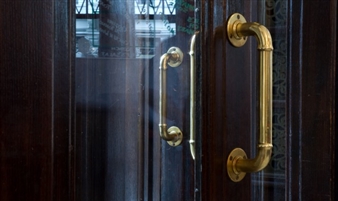Futures

Vilniaus Apskritis, Vilnius, 04/14/2017 - 05/28/2017
Vokieciu 2
In the New Yorker article dedicated to the premier of the tenth season of The X-Files, a hit television series of the 90s*, Joshua Rothman relates the rebirth in popularity of retro-futurism with the confused political policies of the current age, and our anticipation of global catastrophes. In Rothman’s view, which has been shaped by his own admiration for The X-Files, we not only long for a return to the delicate flirtation between Scully and Mulder (two FBI agents and the main protagonists of the series), but also for their old-fashioned fears, which, embedded, as they are, in a world without economical disasters and/or social struggles, provide us with a sense of stability and of a timeless state of being.
The exhibition Futures in CAC aims to be a comment on Rothman’s article and his cinematic nostalgia, and to raise some purely speculative questions, including: Do our fears about (and desires for) the future age? And if so, how? By what process are these fears and desires transformed to construct the present and whose present is it? What makes us return to some of the fears and loves of the past, and what makes others of them irrelevant? How do outdated desires gain new, unfamiliar forms and turn anew into promises for the future? How do we go about categorising the world into the past and the future?
In the current flood of big-budget reboots, oriented towards nostalgia for yesterday’s future, the future might appear unchanging; they also imply that ‘we’, the spectators, have a common understanding of the present. As the word “retro” implies, some anticipation of the future has already aged. From this perspective, the popularity of retrofuturism, or the strive for it, can be viewed as a colonizing phenomenon (and one that, in my view, drained the newest season of The X-Files). It also invites us to think of the anticipation of the future, as well as the end of it, as globally shared, linear phenomena. But what if one’s subscription to the globally expansive market was delayed? Can we also speak of a critical retrofuturism? A retrofuturism that might awaken our sense of the present?

















